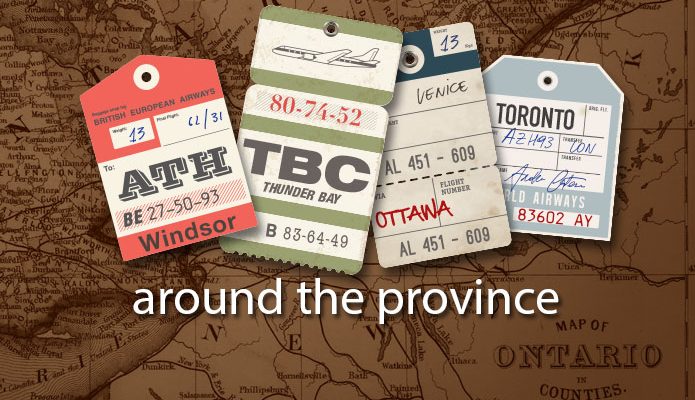
Freedom and Fake News: The College Faculty Strike
By Eva McDonald
During the height of the college faculty strike, the College Employer Council (CEC) stressed three key things to the press: that weekend bargaining had broken down, that there would be a forced vote on the offer, and that academic freedom was the only item they could not agree on. They did not tell the press, however, that the offer before voters did not include any of the items agreed upon over the weekend. When OPSEU reviewed the offer, they were appalled: not only were these items missing, but the concession demands were worse than the original offer.
Nobody is better qualified to combat fake news than librarians: at the core, our jobs are about finding good information and – crucially – evaluating that information critically. Ontario college librarians played a pivotal role during the strike, connecting with each other and contacting faculty members in an effort to interpret media coverage of the strike neutrally. This active campaigning was central to the strong “reject” vote result.
Unfortunately, many opinion pieces in the press focused on academic freedom, often relying on the same misinformation we were trying to correct: they argued that it is a luxury in the colleges, not a necessity, and dismissed the union’s insistence on fighting for it. Many faculty members I personally contacted felt the same way; one argument from the College Employer Council (CEC) states that academic freedom may lead to abuse, resulting in the Jordan Petersons of the academic world.
However, academic freedom in the universities is not the same as in the college sector. The academic freedom that OPSEU desires concerns allowing teaching faculty to control teaching materials at the classroom level, but in the colleges, teaching materials are created by curriculum developers – teaching faculty must deliver it verbatim. During the strike, Seneca College created a mascot named Instructo-bot to illustrate this problem, highlighting that teaching faculty are treated like automatons who have no say in what, or how, they teach.
An example: teaching professors will often urge their students to ignore presentation slides. The information may be outdated or plainly incorrect, but they must show the slide because there are repercussions for deviating from the course materials. Likewise, students often complain that their professors never refer to their textbooks, but the instructors are required to tell their students to purchase them.
When I was teaching a bibliographic instructional class, I was asked to demonstrate how to find a specific reference work; but when I mentioned that the print copy was outdated and that a newer version was available online, the professor stopped me, clearly panicked. She asked me to teach the students how to find the older edition instead, and in the ensuing uproar, she offered the defense that she was required to teach to the set curriculum, cutting off the discussion.
Shortly after the strong “reject” vote, faculty members were legislated back to work. The arbitration process is still ongoing, but academic freedom remains a core concern in the college sector, and we need more people to advocate for its importance. If you are a college librarian, I urge you to make your voice heard at your union local – and if you are not, please support our efforts to have the colleges recognize the importance of our work in academic libraries.
Eva McDonald is the librarian faculty union steward at Centennial College. She can be reached at emcdonald [at] centennialcollege.ca.

